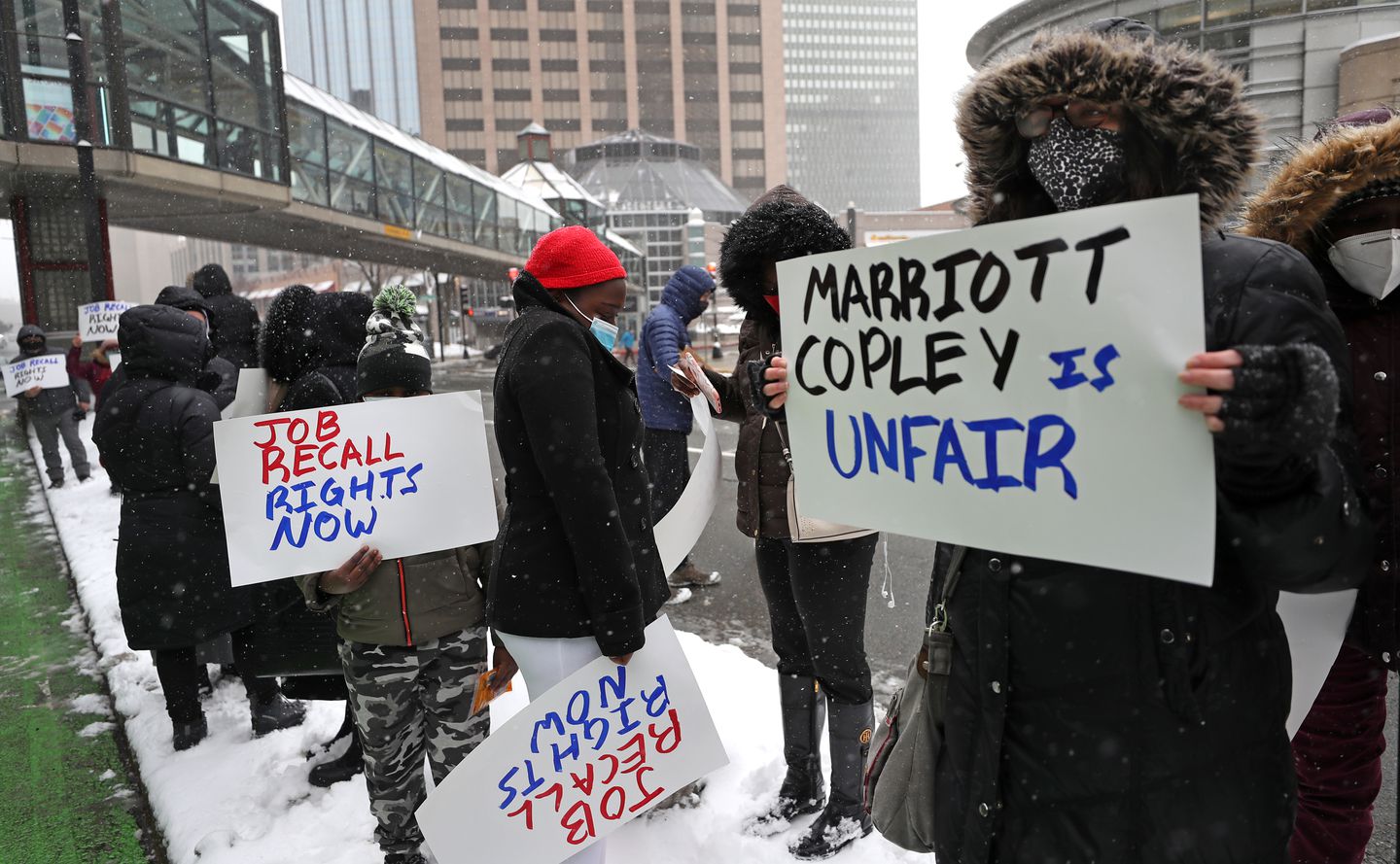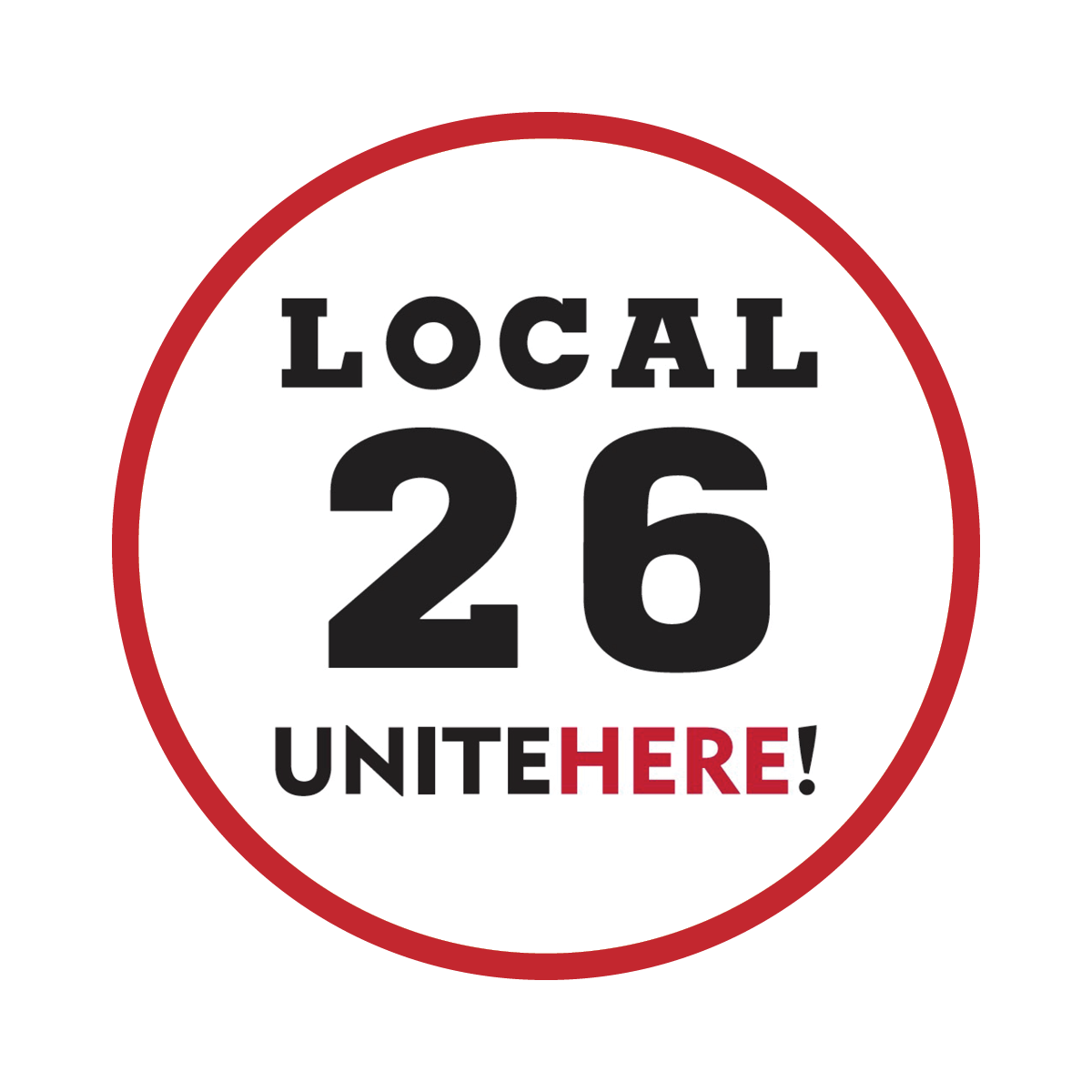Terminated Marriott Copley workers launch hotel boycott

A group of workers terminated last fall by the Boston Marriott Copley Place are launching a boycott against the hotel, escalating their fight to be reinstated as the summer travel season approaches and the beleaguered hospitality industry struggles to recover.
The employees, backed by the local hospitality workers union, are calling on guests and organizations to take their business elsewhere until the hotel agrees to reinstate the 230 workers who were let go. The workers are also demanding full severance pay instead of the reduced packages they were offered.
The boycott, set to be announced at a rally in front of the Marriott Copley on Friday morning, comes at a crucial moment for the hotel industry, which is starting to show signs of life as people get vaccinated and plan vacations for the first time in more than a year. The pandemic has devastated properties in Boston, which suffered bigger drops in revenue per available room than any other market besides New York and isn’t expected to return to pre-pandemic levels until 2025.
As the second-largest hotel in Boston, and one of the few with a ballroom big enough to host more than 1,000 people, the Marriott Copley hosts many galas and dinners. GLAD, the Boston-based legal advocacy group for the LGBTQ community, hosts a fund-raiser there every year, including one scheduled for November. Since learning about the boycott, GLAD has taken action, executive director Janson Wu said in an e-mail: “We have let the Marriott know that we are not comfortable hosting our annual fundraising dinner there should the status quo continue. We hope that they will change course and do right by their employees and the community.”
Workers also plan to reach out to politicians, religious groups, and other worker advocacy groups to promote the boycott, which could be relatively easy to comply with given that travel isn’t expected to fully rebound right away. That means there will be more rooms available than usual, giving guests plenty of options to choose from, said Carlos Aramayo, president of Unite Here Local 26, which doesn’t represent the Marriott Copley workers but has been supporting their efforts. The boycott is a serious commitment for workers, who will continue picketing at the hotel, and it’s crucial they are front and center delivering the message, Aramayo said.
Local 26 said it has prevailed in all four boycotts it launched over the past decade: at three Boston-area Hyatt hotels starting in 2009, when housekeepers were fired after training their replacements, which resulted in a million-dollar settlement; and at Le Méridien Boston Cambridge in 2012, DoubleTree Suites by Hilton Hotel Boston-Cambridge in 2014, and Hilton Boston Back Bay in 2016 — all demanding a fair process to join the union.
In 2014, Market Basket customers boycotted the grocery chain — an action encouraged by local lawmakers — in support of workers who walked off the job after their beloved CEO was ousted; after more than six weeks of protests, the CEO was reinstated.
“This is one of the worst examples we’ve seen of using the pandemic to cynically make permanent changes to the workforce,” he said. “And I think hopefully once the traveling public is aware of that, and given that there are going to be a lot of deals out there, they’ll choose to spend their dollar elsewhere until this gets resolved.”
Alan Smith, general manager of the Marriott Copley Place, declined to comment on the boycott.
After reopening in August, the hotel quickly moved to permanently lay off half its workforce, including Adi Fejzic, 52, whohas worked at the hotel for 19 years, after fleeing the war in Bosnia and arriving in Boston with nothing. He started in housekeeping and became a banquet server a few years later, regularly working double or triple shifts and sometimes staying overnight at the hotel in order to get up before dawn and start again the next day. One year, when 700 Muslim guests from Malaysia were staying at the hotel during Ramadan, Fejzic said, he worked through the night to serve meals to guests who were fasting during the day.
“Sometimes I couldn’t see my kids for four or five days because I’m working always,” he said.
Fejzic and his wife, who is a housekeeper at the Renaissance Boston Waterfront Hotel, which is also a Marriott property, put their son through college at UMass-Amherst and were paying their daughter’s tuition there until they were both furloughed.
Fejzic and his wife, who is a union member with a 30-month right of recall to get her job back, are also struggling to pay the mortgage on their condo in Melrose. They’ve started to sell furniture and clothes, he said.
“I feel really like a piece of garbage,” he said.
Fejzic supports the boycott and is grateful to be doing something that could help him and his coworkers get their jobs back. The Marriott Copley was his first and only job in the United States, and he doesn’t know what else he can do to support his family.
“Who is going to take me at 52 years now?” he said. “I’m really scared. I don’t know what I’m going to do.”
Katie Johnston can be reached at [email protected]. Follow her on Twitter @ktkjohnston.


